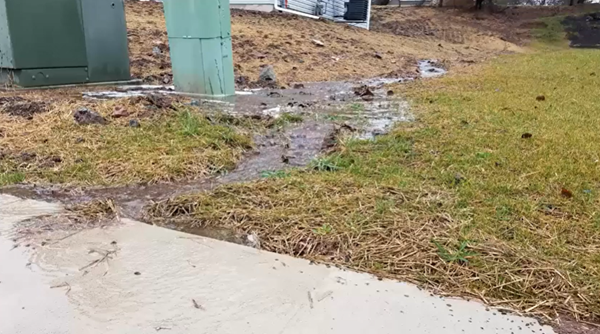CONSERVATION CORNER
A weekly blog for all things conservation
 By: Heather McKean; former Penn State Extension educator Have you ever discussed stormwater with your neighbor or wondered how to be a better stormwater neighbor? Neighbor disputes over stormwater are very common. Water does not follow property boundaries and there are often instances where water flows from one property onto another and causes damage. It is important to realize that activities on your own property can adversely affect your neighbor's property. The first thing to do as a responsible neighbor is to familiarize yourself with how stormwater flows on your own property. Ask yourself how does water enter and exit my property? Are there areas of concentrated flow currently causing damage to your property or adjacent neighboring property? If so, flows can be re-directed to vegetated areas for infiltration. You can also install a rain barrel, cistern, rain garden, or dry well as needed to control roof run-off.
When installing best management practices (or BMP's), do not direct stormwater flows onto a neighboring property and do not block stormwater from leaving your neighbor's property. Stabilize disturbed areas and maintain lawns, driveways, and gardens to prevent erosion and sedimentation on your own and on other peoples' properties. Changes from building and land development activities can alter natural flows of surface and stormwater. It is important to recognize that grading and re-grading can change how water moves across the land. It is essential to leave natural drainage paths undisturbed when possible and never intentionally concentrate stormwater flows. If you live near a stream, pond, or stormwater drain you can plant a riparian buffer or establish a “grow zone" along the waterbody to allow pollutants to be filtered before reaching the water. This will help prevent erosion on your property. Also, do not compost yard waste such as leaves, grass clippings, or mulch into or near a stream or stormwater drain. Clean up trash, litter, and other debris that may clog a drain or small stream that could potentially cause flooding or pollution from water run-off. If you find yourself in a dispute with a neighboring property owner over stormwater issues remember: open communication and cooperation can prevent stormwater issues and help resolve existing stormwater problems. If you have questions about local stormwater regulations, contact your municipality. It is important to take steps to protect natural water courses, infiltration areas, and drainage paths. Be mindful of how your actions can affect adjacent landowners and take steps to prevent damage not only on your own property but also on your neighbor's property. If you have additional questions about stormwater, or you are just interested in learning more, you can find a full series of videos and articles in the Penn State Extension Stormwater Basics series, https://extension.psu.edu.
0 Comments
Leave a Reply. |
AuthorsVarious staff at the Bradford County Conservation District Archives
July 2024
Categories
All
|
|
Bradford County Conservation District
Stoll Natural Resource Center 200 Lake Road, Suite E | Towanda PA 18848 Phone: (570)-485-3144 |
